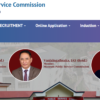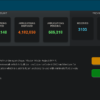The link you provided leads to the DSEL (Department of School Education and Literacy) PAB (Project Approval Board) Minutes page. This platform is part of the Indian government’s efforts to enhance the quality of education through various initiatives and programs. Here’s an overview of what you can expect from this page:
Overview of DSEL and PAB
- Department of School Education and Literacy (DSEL):
- DSEL is a part of the Ministry of Education in India, responsible for formulating policies and implementing programs related to school education and literacy across the country.
- Project Approval Board (PAB):
- The PAB is a committee that reviews and approves various educational projects and initiatives proposed by states and union territories. It plays a crucial role in ensuring that educational programs align with national goals and standards.
Purpose of the PAB Minutes Page
- Transparency: The PAB minutes page aims to provide transparency regarding the decisions made by the board. It allows stakeholders, including educators, policymakers, and the general public, to access information about approved projects and initiatives.
- Documentation: The minutes document the discussions, decisions, and recommendations made during PAB meetings. This includes details about funding allocations, project objectives, and implementation strategies.
- Accountability: By making these minutes publicly available, the DSEL holds itself accountable for the decisions made regarding educational projects and initiatives.
Key Features
- Access to Minutes: Users can view and download the minutes of PAB meetings, which typically include:
- Date and venue of the meeting
- List of attendees
- Agenda items discussed
- Decisions made and approvals granted
- Recommendations for future actions
- Historical Records: The page may provide access to past minutes, allowing users to track the progress and evolution of educational projects over time.
Importance for Stakeholders
- Educators and Administrators: School administrators and educators can gain insights into approved projects that may impact their institutions and can align their efforts with national educational goals.
- Researchers and Analysts: Researchers studying educational policies can use the minutes as a resource for understanding the decision-making processes and priorities of the government.
- General Public: Citizens interested in the education sector can stay informed about government initiatives and their implications for school education in India.
Visited 1 times, 1 visit(s) today









